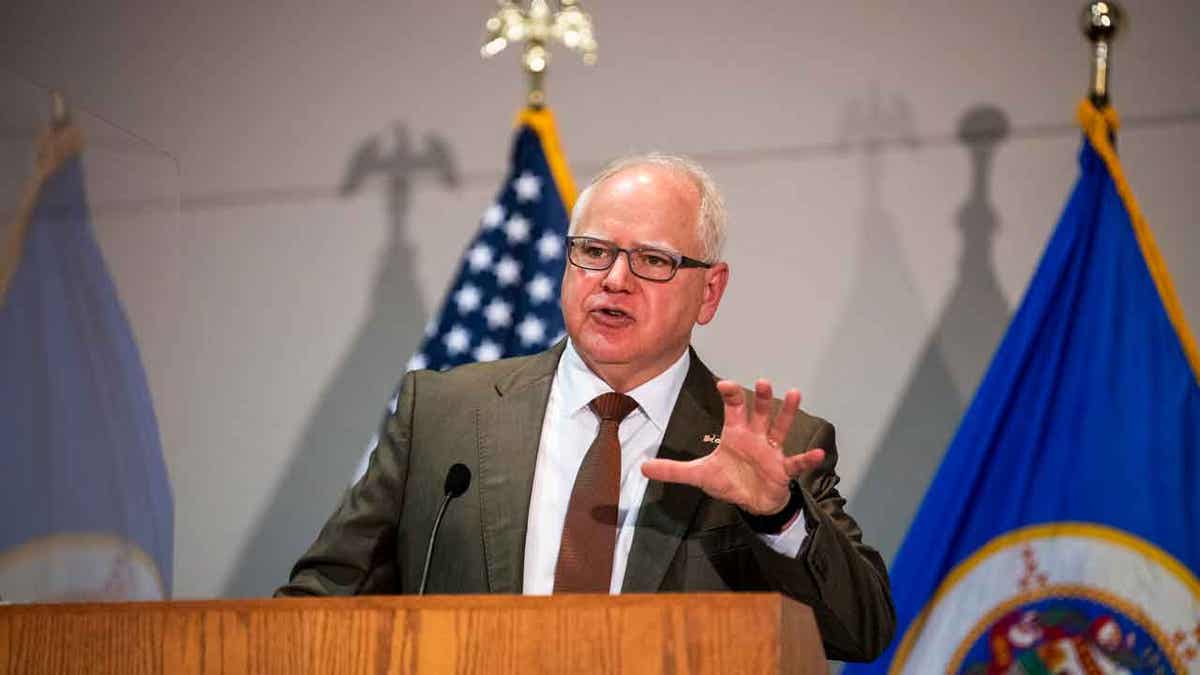Chasten Buttigieg says it's an 'extremely dangerous' time with GOP 'book bans' and transgender laws
Secretary of Transportation Pete Buttigieg's husband Chasten Buttigieg joined the hosts of "The View" on Thursday and said it was an "extremely dangerous time" with GOP "book bans" and transgender laws.
Earlier this month, Democrat Minnesota Governor Tim Walz signed an executive order prohibiting the enforcement of court orders or child protection laws from other states if they interfere with a parent’s desire to provide puberty blockers, cross-sex hormones and sex change operations to their minor children.
At the signing ceremony, Democrat Lieutenant Governor Peggy Flanagan, flanked by trans activists and young children, said: "When our children tell us who they are, it is our job as grown-ups to listen and to believe them. That's what it means to be a good parent."
Does it?
Children often imagine themselves as something they’re not. Kids role play and pretend to be different characters from beloved movies or books. Parents can and should encourage such imaginative play and might even consider buying costumes, even using the character’s name for a time. But there are limits. Adults are there to pull them back to reality. That’s a parent’s job.

Democrat Minnesota Gov. Tim Walz signed an executive order prohibiting enforcement of court orders or child protection laws from other states if they interfere with a parent’s desire to pursue transgender procedures for their children. (Stephen Maturen/Getty Images)
Parents handle teen impulses similarly. Teenage years are a natural time for experimentation, and parents generally allow teens to present themselves differently, changing their hair and dress, but discourage them from making lasting decisions — like getting a tattoo — since we know teens are capricious and their love for a particular trend is likely to fade and lead to future regret.
Sadly, today, children of all ages are being encouraged to entertain the dangerous myth that they have been born in the wrong body. Is it good parenting to immediately affirm such declarations, stopping natural puberty, removing healthy breast tissue, and even removing or altering healthy sexual organs?
Society has always understood that kids need special protections because they are too young to make informed decisions about their long-term best interests. In other words, kids — including teens — are naturally short-sighted. Fitting in with a peer group and following a trend can seem the most important priority in the world to a vulnerable 13-year-old.
We adults know better, or at least we used to. This is why laws generally set the legal age of adulthood at 18. Parents, not children, are supposed to help with decision-making so that people do not have to live with life-long consequences from decisions made at 13 years old.
Minors cannot legally purchase alcohol, cigarettes, e-cigarettes or vape liquid, or marijuana. They cannot apply for a driver’s license, or even go on a field trip at school without a parent’s permission. There are age limits for getting tattoos, pierced ears, and other body modifications. Minors can’t legally purchase pornography or even attend an R-rated movie until they turn 17 years old. The U.S. Department of Health and Human Services even acknowledges that children are unable to provide informed consent to participate in medical research.
CLICK HERE TO GET THE OPINION NEWSLETTER
Some lawmakers think 18 years old is too young for adulthood and far too young to face the consequences of adult decisions — like committing a crime. In fact, in Maryland, Democrat lawmakers want to make it illegal to charge anyone under 25 years old with felony murder because brain development isn't complete until that age.
Shouldn’t these policymakers apply the same standard to taking life-altering, potentially sterilizing and life-shortening drugs and surgical procedures?
At the very least, shouldn’t policymakers stop calling people bad parents for wanting to move slowly and cautiously when their child makes these sorts of demands?
Society has always understood that kids need special protections because they are too young to make informed decisions about their long-term best interests. In other words, kids — including teens — are naturally short-sighted. Fitting in with a peer group and following a trend can seem the most important priority in the world to a vulnerable 13-year-old.
Additional legal protections for children may be needed, but more centrally our society needs to re-establish the social norms associated with protecting children, their mental well-being, and their physical health.
CLICK HERE TO GET THE FOX NEWS APP
The job of parents and society is to provide guidance and guard rails so that children, teenagers, and young adults can navigate life and learn from the various phases they enter and exit to emerge as healthy, confident, self-assured, and productive adults who are ready to lead meaningful lives.
That — not blind affirmation — is good parenting.
CLICK HERE FOR MORE FROM CARRIE LUKAS
Carrie Lukas is vice president of Independent Women’s Voice.











































